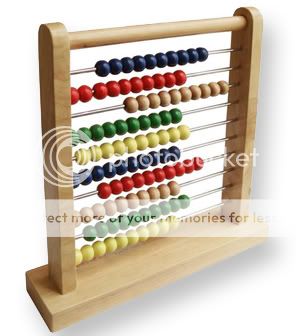I Am Nico
master brummie
How did you learn to count? I was prompted by Jeremy Vine show radio 2 how children learn or don't learn to read.
At school we had 10 types of coloured pieces of wood kitkat size all different colours, ! was white, 1o was blacl 7 pink maybe etc and you put them in multiples on your black piece 7 plus 3 etc = 10 orange plus blue.This was aged 7 to 8.
I just liked playing with the colours I liked best like most of us except for about 3 bright sparks who got it.
I learned with great gran dunking biscuits with holes in tea, like rich tea and morning coffee and arrowroot, eating a bit then telling her how many holes were left in the biscuit. I still think of holes when I count now. We also had dots on bits of wood like big dominoes,.
I also counted the Cadburys roses on the big tins, we got them from a sweet shop (empty) for storing cakes in.
Now you can take a calculator to an exam.
At school we had 10 types of coloured pieces of wood kitkat size all different colours, ! was white, 1o was blacl 7 pink maybe etc and you put them in multiples on your black piece 7 plus 3 etc = 10 orange plus blue.This was aged 7 to 8.
I just liked playing with the colours I liked best like most of us except for about 3 bright sparks who got it.
I learned with great gran dunking biscuits with holes in tea, like rich tea and morning coffee and arrowroot, eating a bit then telling her how many holes were left in the biscuit. I still think of holes when I count now. We also had dots on bits of wood like big dominoes,.
I also counted the Cadburys roses on the big tins, we got them from a sweet shop (empty) for storing cakes in.
Now you can take a calculator to an exam.


